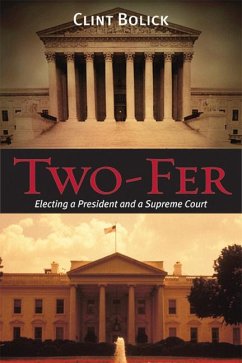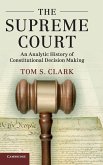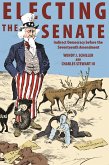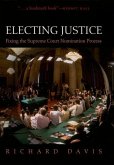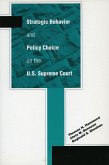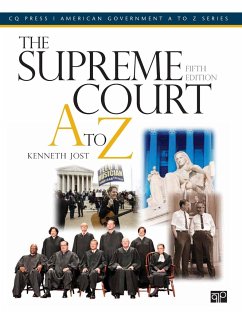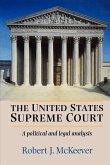Every US presidential election presents different burning issues. From Teapot Dome to Vietnam to Watergate, issues come and go, and the impact of national elections in resolving these issues is sometimes minor or fleeting. But one issue that rarely makes an appearance in national campaigns may nonetheless be the most important and enduring consequence of electing a president: the party that controls the White House also controls the appointment of the federal judiciary. Judicial nominations are the huge yet invisible issue in the presidential campaign--and it matters enormously who is elected to make those nominations. In Two-Fer, Clint Bolick examines the importance of judicial nominations in current and future political campaigns--not just in campaigns for president but also for the senators who confirm the nominees and the governors who appoint state court judges. Bolick reviews the uneven history of the federal courts in fulfilling the crucial role intended for them by our Constitution's framers and assesses the record of the current Supreme Court in vindicating the framers' vision. He offers his own opinion of the framers' original intentions--that the judiciary play a robust role in curbing abuses of government power and protecting individual rights--and defends his position using both a historical perspective and a look at the Court's decisions on today's most contentious issues. The author shows how, throughout history, justices in landmark cases frequently departed from the philosophies of the presidents who appointed them, and how a partisan divide on the Supreme Court became the rule rather than the exception. He also explains why judicial nominations are more ideologically driven than ever before and why recent presidents have proven more successful than their predecessors in appointing judges who reflect their judicial philosophies. For presidents fortunate enough to have the opportunity to do so, the nomination of Supreme Court justices is probably their most important and enduring decision, for most of the judges will far outlast the administration that appointed them. This is why, Two-Fer shows, it is important to carefully consider who will possess the awesome power to nominate and confirm judges.
